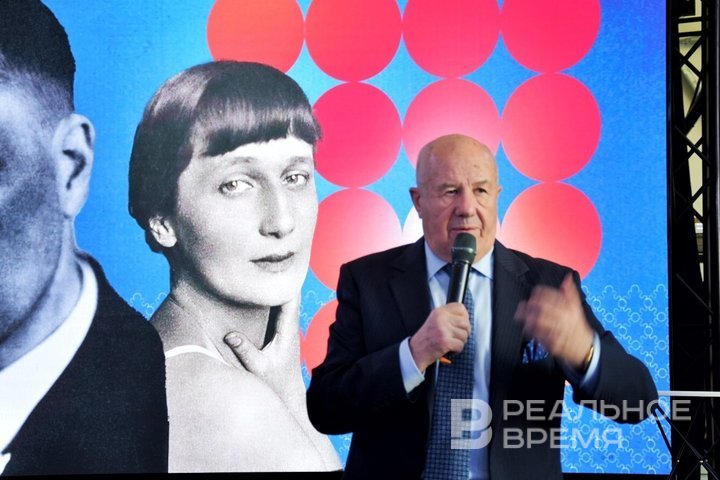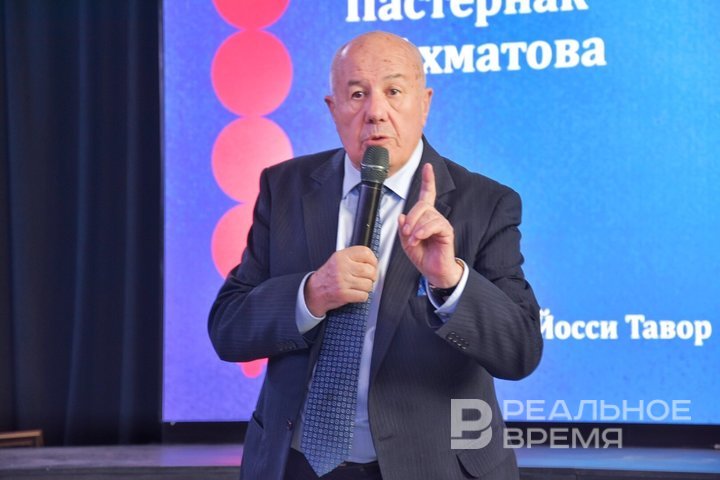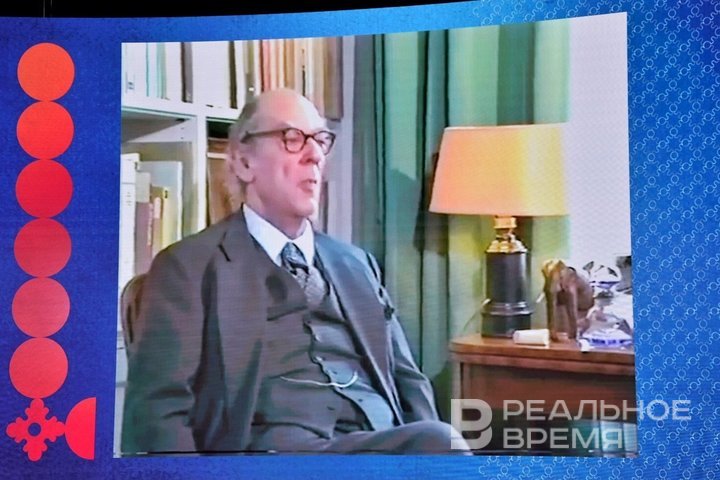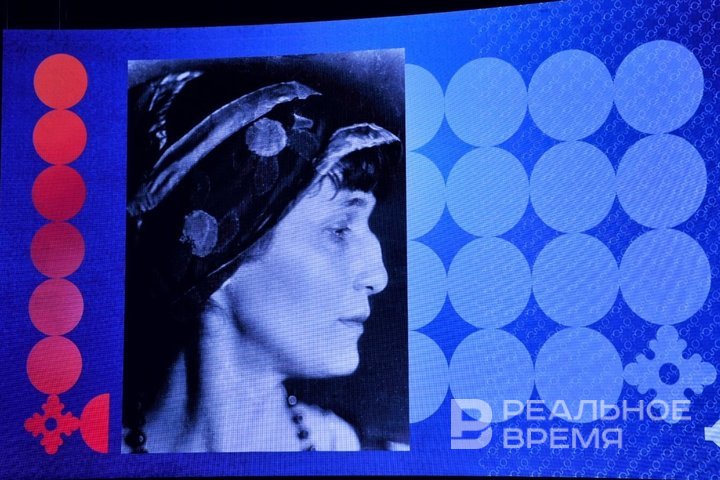Yossi Tavor about Anna Akhmatova: ‘She wanted to be admired’
At the Pasternak Readings in Mendeleevsk, journalist Yossi Tavor told about the visit of a British diplomat who turned Anna Akhmatova's life upside down

Last weekend, the second literary and theatrical festival Pasternak Readings was held in Mendeleevsk. It featured various theatrical productions and meetings related to Pasternak, Akhmatova, Tsvetaeva and Bulgakov. One of the interesting events of the festival was a lecture by Yossi Tavor, a journalist, cultural columnist and presenter of Radio Orpheus. He told about a secret meeting of British diplomat Isaiah Berlin with Anna Akhmatova in her apartment on Fontanka.
The meeting of two worlds
In 1946, when Isaiah Berlin crossed the threshold of Akhmatova's apartment, he probably did not realise that this meeting would be the beginning of new suffering for the great Russian poetess. The meeting of two people separated by 20 years, epochs and cultures, but connected by a passion for poetry and the fates of people who scattered to different parts of the world, left a deep mark not only in their personal lives, but also in the political and literary context of that time.

Leningrad had not yet recovered from the war. The city, torn apart by the blockade, was slowly coming to life, but the smell of suffering was still in the air. In a bookstore on Nevsky Prospekt, Isaiah Berlin, then just an English diplomat, without a shadow of the fame that would later overtake him, discussed the fate of Leningrad writers with Vladimir Orlov. Suddenly, the conversation turned to Anna Akhmatova, whom Isaiah, as it turned out, considered dead. After learning that the poetess was alive and living nearby, he decided to meet her.
“Orlov said: 'Of course, she lives not far from here, on Fontanka, you can meet her. Shall we go?' They went there and started a conversation. Akhmatova was very careful, she didn't know what to say, what to do," says Yossi Tavor.
Ten years of life
When Isaiah Berlin found himself in apartment No. 44 on the third floor of the Fountain House, Anna Akhmatova was no longer the young muse that Modigliani had once painted. She is 56, he is 36. Her entourage is the personification of tragic Russia. Relatives were killed, and Lev the son was arrested three times. The poetess is still trying to put words into poetry, despite all the prohibitions.
“She wanted to be admired," Tavor says, and adds, “This visit took ten years of her life.”

Why ten years? The answer lies not only in the nature of their meeting, but also in its consequences. After Berlin left the apartment for the first time to take away Winston Churchill's drunken son Randolph Churchill, he returned to Akhmatova, as promised, by nine in the evening. They sat, talked, and read poetry. She read her poems, read Byron's poems in English. Berlin understood everything, despite the strong accent.
On the night of their first full-fledged conversation, Isaiah Berlin was captivated by Akhmatova, her demeanor, her tragic aura. They talked until morning, discussing poetry, literature and the fate of Russian emigrants. Akhmatova, immersed in her past, talked about a trip to Paris, about meetings with Modigliani and other artists who painted her portraits.
The beginning of the end
It is not surprising that the authorities did not ignore such a meeting. Shortly after Berlin's visit, “renovation works” began in Akhmatova's apartment. Listening devices, round-the-clock observers — all this became a part of the poet's life after that evening.
“Of course, Mr Churchill was followed by a whole swarm of people who followed him," comments Tavor. This “swarm” did not leave Berlin without attention. The irony is that Berlin's visit turned out to be not only Akhmatova's personal tragedy, but also a political one: it became the reason for her next exile from the literary life of the country.

In 1946, at the famous congress, where Mikhail Zoshchenko and Anna Akhmatova were criticised, Zhdanov could not resist venomous attacks against the poetess, calling her a “harlot” and a “nun”. For ten long years Akhmatova was excluded from the official literary life of the USSR. They stopped printing her works, and future editions were disassembled like sets of books.
After this meeting, Akhmatova did not see Isaiah Berlin again. According to the memoirs of friends, she continued to talk about him, and Boris Pasternak noted in letters to Berlin: “She only talks about you.” Berlin returned to England, where his diplomatic career took off. But the meeting with Akhmatova left an imprint on his life, although he never admitted to any romantic relationship with her. Anyway, this meeting changed not only the personal destinies of two people, but also reflected on their work. Akhmatova, in turn, left allusions to this fateful visit in her “Poem Without a Hero”.
“Should I say cold war started? I don't know, but this visit was the beginning of something much bigger," concludes Yossi Tavor. The meeting between Akhmatova and Berlin, filled with tragedy and passion, became a metaphor for the time when personal stories became part of big political processes.
Ekaterina Petrova — a literary reviewer for Realnoe Vremya online newspaper, author of Poppy Seed Muffins Telegram channel, founder of the first online subscription book club Makulatura.